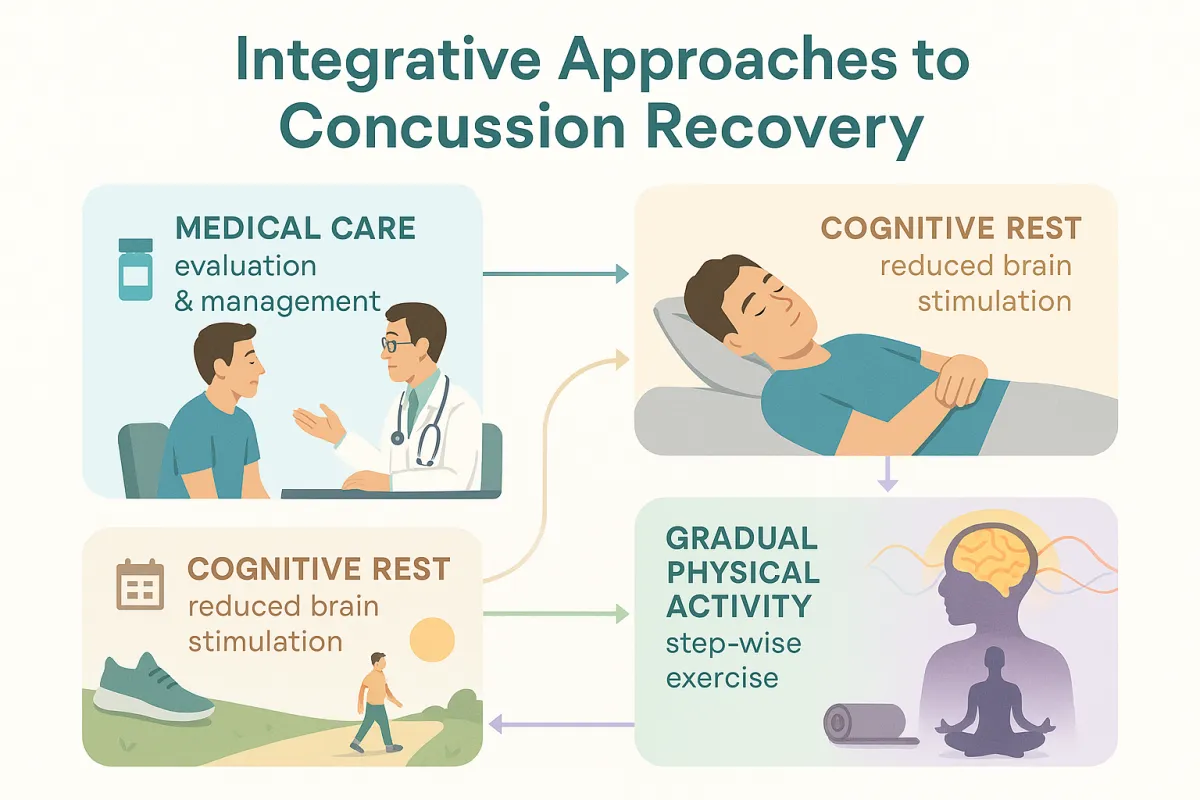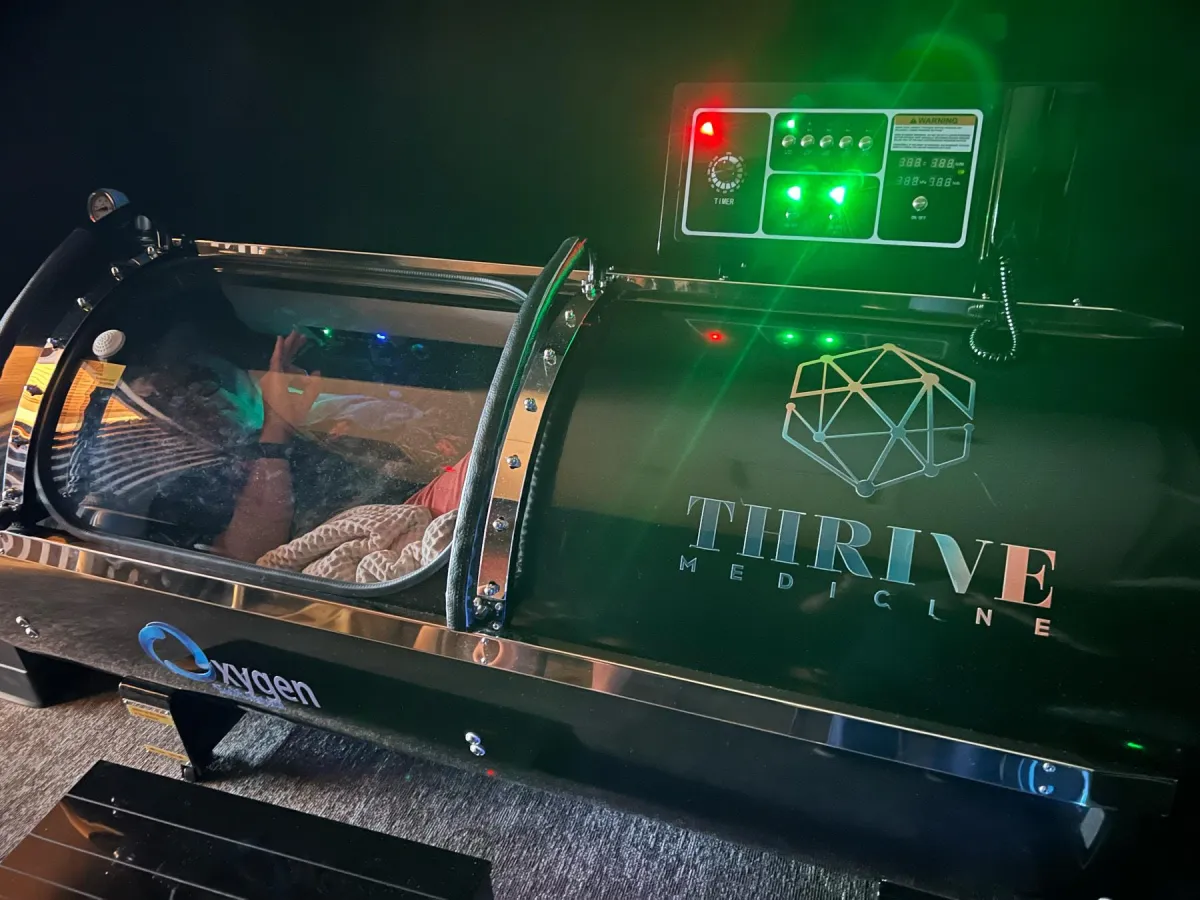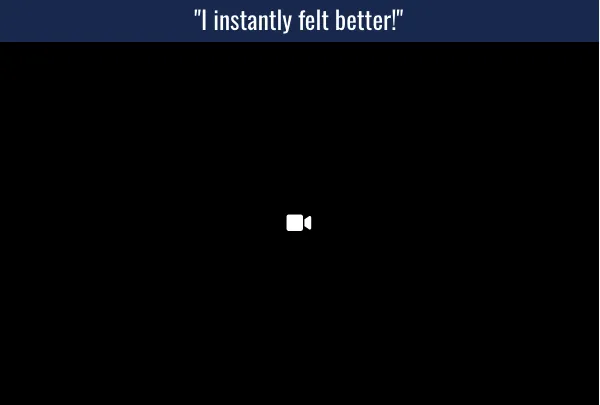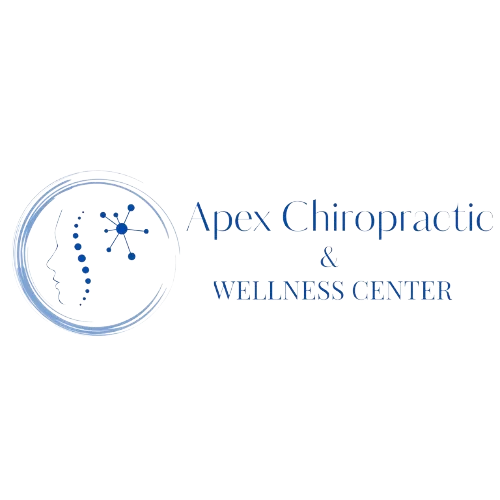Hyperbaric Oxygen Chamber
Revitalize Your Lungs and Tissues with Hyperbaric Oxygen Chambers
Alternative Concussion Recovery Methods

Modern concussion care goes beyond rest or medication. At Apex Chiropractic & Wellness Center, we specialize in alternative concussion recovery methods that combine neurologically based chiropractic care, neurofeedback, laser therapy, soft tissue rehabilitation, functional medicine, and hyperbaric oxygen therapy to treat post-concussion symptoms. Our goal is to support the brain and body in restoring balance, reducing inflammation, and improving neurological function for patients seeking concussion care in Lancaster, PA.
Integrative Approaches to Concussion Recovery
Effective recovery addresses both the physical signs and underlying neurologic dysfunction. Apex blends advanced diagnostics with chiropractic and adjunctive therapies to build personalized recovery paths for patients dealing with concussions or TBI. Depending on the individual, our protocols may include:
Neurofeedback
Laser therapy
Soft tissue rehabilitation
Chiropractic adjustments
Functional medicine and nutrition guidance
Hyperbaric oxygen therapy
Support for vestibular therapy and balance rehabilitation
These methods help reduce pain, improve cognitive functions, and support neurological healing over time. Many patients also benefit from structured rehabilitation strategies that encourage movement, restore stability, and promote confidence during recovery.

The Role of Advanced Diagnostics in Identifying Root Causes
Accurate testing is essential for effective concussion recovery. Neurological exams, orthopedic assessments, and advanced imaging can reveal which areas of the brain and body are under stress. This level of detail makes it possible to create targeted recovery strategies instead of relying on symptom management alone. When providers understand the root cause of problems such as headaches, mood changes, or brain fog, they can match therapies more precisely and track measurable progress over time.
Neurological exams: These tests evaluate brain function, balance, and coordination, helping identify disruptions that often follow a brain injury. Clear insights guide treatment strategies tailored to each patient’s symptoms.
Orthopedic assessments: Structural misalignments or soft tissue strain can worsen concussion symptoms. Identifying these issues ensures recovery plans address both neurological and physical care.
Brain mapping: Measuring brainwave activity highlights dysregulated patterns linked to cognitive problems or sleep disturbances. This data supports targeted neurofeedback therapy.
Functional testing: Assessments of memory, focus, and emotional regulation provide a window into lingering cognitive changes. Tracking these areas helps measure recovery progress.
Inflammatory and metabolic markers: Laboratory evaluations can uncover systemic imbalances fueling persistent post-concussion symptoms. Nutrition and functional medicine treatments are then customized to reduce inflammation and support brain repair.
Vestibular assessment: Testing for balance and dizziness identifies vestibular dysfunction, which can be addressed with vestibular therapy to restore stability and reduce related symptoms.
By combining advanced diagnostics with targeted therapies such as chiropractic care, neurofeedback, and vestibular rehabilitation, patients receive a comprehensive approach that supports both neurological recovery and long-term resilience.
Neurofeedback and Brain Training for Post-Concussion Healing
Neurofeedback therapy is a powerful tool in concussion or TBI recovery because it helps the brain restore healthy patterns after a head injury. Many patients experience ongoing symptoms such as headaches, difficulty concentrating, sleep problems, or mood changes long after the initial injury. By training brainwaves to shift into more balanced states, neurofeedback supports regulation of focus, memory, and emotional stability while reducing the effects of brain injury.
This treatment relies on neuroplasticity, the brain’s ability to adapt and form new connections. During sessions, sensors monitor brain activity in real time and provide feedback that encourages self-regulation. Over time, this method can reduce disorganized brainwave activity associated with post-concussion syndrome. Neurofeedback therapy can also complement exercise, relaxation techniques, or cognitive tasks to enhance recovery from head trauma.
Practical Tips for Incorporating Neurofeedback into Daily Routines

Integrating neurofeedback therapy into daily life can feel manageable with the right structure. For many individuals in concussion recovery, consistency and supportive routines make brain training more effective. The following strategies help patients establish a sustainable plan that works alongside other treatments for persistent symptoms.
Start with consistency: Short, regular neurofeedback therapy sessions provide steady stimulation for the brain and are often more effective for concussion recovery than infrequent, longer treatments.
Create a distraction-free environment: A quiet, comfortable setting supports focus and makes the brain more responsive to training, especially when symptoms like fatigue or headaches are present.
Pair with cognitive exercises: Simple memory or focus activities recommended by a provider can strengthen the benefits of neurofeedback and help restore cognitive function after a brain injury.
Use relaxation techniques: Mindful breathing or light stretching before and after sessions can calm the nervous system, making recovery more effective.
Track progress: Keep a journal of sleep patterns, mood changes, or symptom relief. This feedback helps providers adjust treatment to meet individual recovery goals.
Integrate with daily routines: Scheduling sessions at the same time each day builds consistency and reinforces new, healthier brain patterns over time.
These tips make neurofeedback therapy less overwhelming and more practical for patients dealing with lingering concussion symptoms. By combining structure, consistency, and self-awareness, individuals can turn brain training into a reliable tool that supports long-term recovery.
Reducing Systemic Inflammation with Functional Medicine and Nutrition

Systemic inflammation is often a hidden factor in persistent post-concussion symptoms such as headaches, brain fog, fatigue, and pain. Functional medicine takes a personalized view, examining diet, gut health, and metabolic imbalances that may interfere with concussion recovery. By combining nutritional support with therapies, patients can reduce inflammation and support brain and body repair.
Anti-inflammatory nutrition: Foods high in omega-3s, antioxidants, and clean proteins help deliver nutrients that support repair from brain injury.
Identifying food sensitivities: Removing inflammatory triggers may lessen headaches, mood swings, or other symptoms.
Nutritional supplementation: Targeted vitamins and minerals help restore biochemical balance and support recovery.
Synergy of therapies: Pairing dietary changes with treatment such as soft tissue work or laser therapy helps integrate relief across neural and musculoskeletal systems.
By combining functional medicine with therapies that target pain and neurological stress, patients can pursue a realistic path toward recovery after concussions.
Supporting Your Recovery Every Step of the Way

If you or a loved one are experiencing post-concussion challenges, Apex Chiropractic & Wellness Center in Lancaster, PA can help. Our team uses advanced diagnostics, chiropractic care, neurofeedback, hyperbaric oxygen therapy, laser therapy, soft tissue rehabilitation, and functional medicine to address underlying causes and support optimal brain healing. Schedule a Consult & Exam to discuss your history, receive a neurological and musculoskeletal evaluation, and create a plan tailored to your recovery.
TRUSTED BY OUR COMMUNITY
We’re very proud of the service we provide, and the feedback we get from patients is fantastic.
We’re very proud of the service we provide, and the
feedback we get from patients is fantastic.


Begin your journey to a thriving life today with Apex Chiropractic & Wellness Center's holistic health services in Lancaster—your future self will thank you.
Office Hours
Monday - Friday
9apm-5pm
Sat & Sun
closed
All Rights Reserved © 2025 | Apex Chiropractic & Wellness Center
Powered by: HBOT Revolution
